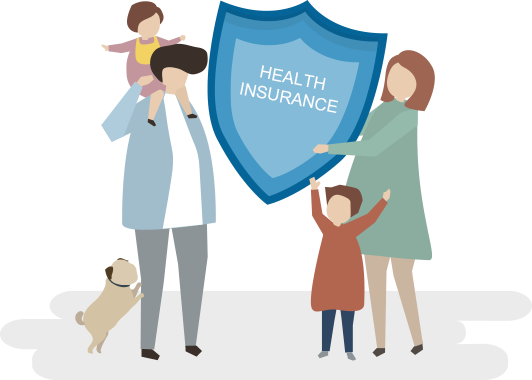As global temperatures rise, heat waves have become familiar and dangerous, posing significant risks to human health and the environment. Over long periods, extreme temperatures can have serious consequences, ranging from heat exhaustion and heatstroke to increased stress on the electricity grid and water resources.
How to Avoid Heat Waves?

Confronted with this escalating challenge, we must equip ourselves with practical strategies to combat and mitigate the impacts of heat waves. By understanding the science behind these events and adopting a comprehensive approach to heat wave preparedness, we can safeguard our well-being and contribute to the resilience of our communities.
Understanding Heat Waves
A heat wave is a prolonged period of excessively hot weather, often accompanied by high humidity and minimal nighttime relief. These events are primarily driven by climate change, the urban heat island effect, high-pressure systems, and reduced evaporative cooling.
- Climate Change: The ongoing global warming trend, primarily attributed to human-induced greenhouse gas emissions, significantly contributes to the increased frequency, intensity, and duration of heat waves worldwide.
- Urban Heat Island Effect: Densely populated urban areas with extensive impervious surfaces, such as concrete and asphalt, absorb and retain heat more effectively, leading to higher temperatures than surrounding rural areas.
- High-Pressure Systems: Persistent high-pressure systems that create stable, cloudless conditions can trap heat and prevent the dispersal of hot air, resulting in prolonged heat waves.
- Reduced Evaporative Cooling: Drought conditions and soil moisture depletion can limit the natural cooling effect of evaporation, exacerbating the intensity of heat waves.
Who's Most at Risk from Heat Waves?
Heat waves can be dangerous for everyone's health. In particular, infants, children, pregnant women, and the elderly are most vulnerable to heatstroke. As we know, too much heat can cause dehydration and can be very dangerous or even fatal. Children suffer more during heat waves because they depend on adults to protect them from the heat. Additionally, pregnant women are also at greater risk as extreme heat and dehydration can increase the risk of low birth weight, premature birth and even stillbirth. Pregnant women may be negatively affected and go into early labour, as well as develop gestational diabetes and high blood pressure.
Ways to Avoid Heat Waves
Effectively managing the risks of heat waves requires a multidimensional approach that addresses individual actions. Here are some key strategies to help you stay safe and comfortable during these challenging periods:
Stay Hydrated
- Drink plenty of water throughout the day, even if you don't feel thirsty.
- Avoid sugary, caffeinated, or alcoholic beverages, as they can contribute to dehydration.
- Keep a water bottle with you, and try to sip water regularly.
Dress for the Heat
- Wear lightweight, loose-fitting, and light-coloured clothing for better air circulation.
- Choose breathable fabrics like cotton or linen over synthetic materials.
- Protect your head and eyes with a wide-brimmed hat or cap and UV-blocking sunglasses.
Seek Cooler Environments
- Spend as much time as possible in air-conditioned spaces like your home, office, or public buildings.
- If you don't have access to air conditioning, visit cooling centres or community facilities that provide relief from the heat.
- Use fans, open windows, and curtains/blinds to create cross-ventilation and block direct sunlight.
Adjust Your Schedule
- Plan outdoor activities and errands for the cooler parts of the day, typically in the early morning or evening.
- Avoid prolonged exposure to the sun during the hottest hours, usually between 11 am and 3 pm.
- Consider working from home or adjusting your work schedule to minimize time spent in the heat.
Monitor Your Health
- Be aware of the signs of heat-related illness, such as fatigue, dizziness, headaches, and muscle cramps.
- Check on vulnerable individuals, like the elderly, young children, and those with pre-existing medical conditions.
- Seek medical attention promptly if you or someone you know experiences severe symptoms.
Protect Your Home
- Ensure your home is well-insulated to prevent heat from entering and cool air from escaping.
- Use energy-efficient appliances and LED light bulbs to minimize heat generation indoors.
- Install awnings, shades, or reflective window coatings to block direct sunlight.
- Maintain and regularly service your air conditioning system.
Stay Informed and Prepared
- Monitor weather forecasts and heat wave advisories to stay informed about impending high-temperature events.
- Create an emergency plan and assemble a preparedness kit in case of power outages or other disruptions.
- Familiarize yourself with local emergency response protocols and resources.
Conclusion
By implementing these comprehensive strategies, you can significantly increase your ability to cope and adapt to the challenges posed by heat waves. Remember, staying safe during these events is not just about individual actions but also about fostering strong community networks and advocating for systemic changes that build long-term resilience.
As the world grapples with the growing impacts of climate change, the importance of heat wave preparedness cannot be underestimated. By taking proactive steps to protect ourselves and our loved ones, we can ensure that we emerge from these challenges stronger, more resilient and better equipped to withstand the climate changes that lie ahead.
Related Article

Lung Cancer: Symptoms, Diagnosis,.....

Kidney Cancer: Symptoms, Diagnosis,.....

Benefits of Sugarcane Juice.....

Heart Valve Disease: Symptoms,.....

Heart Failure: An Overview.....

Lung Diseases

Arrhythmia | Irregular Heartbeat:.....

Kidney Stones: Symptoms,.....
